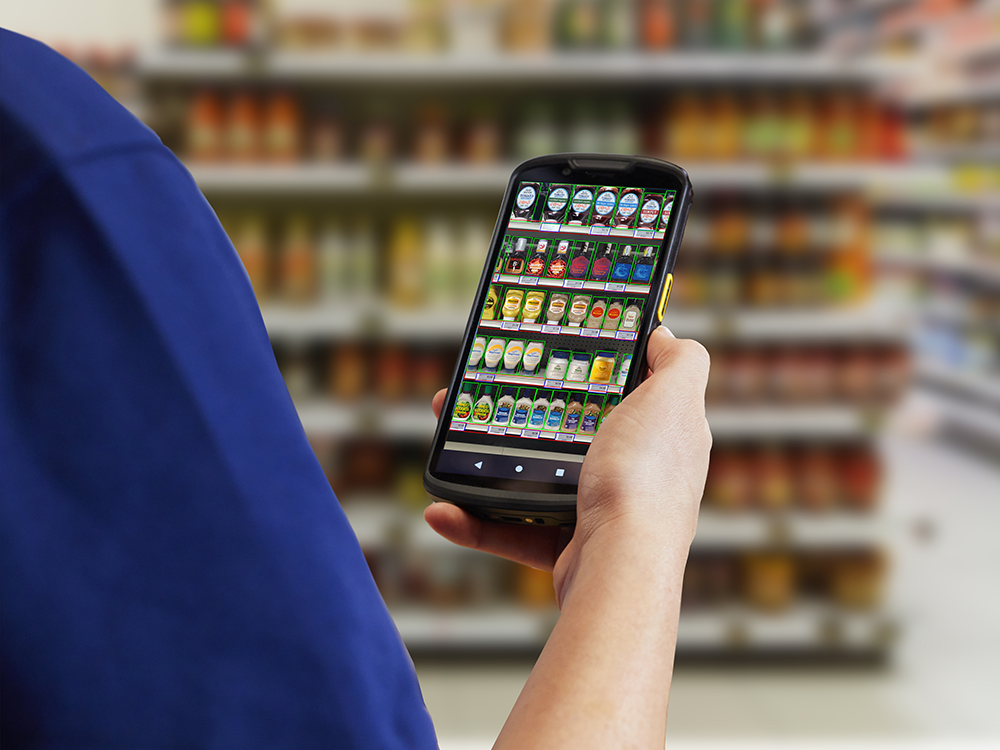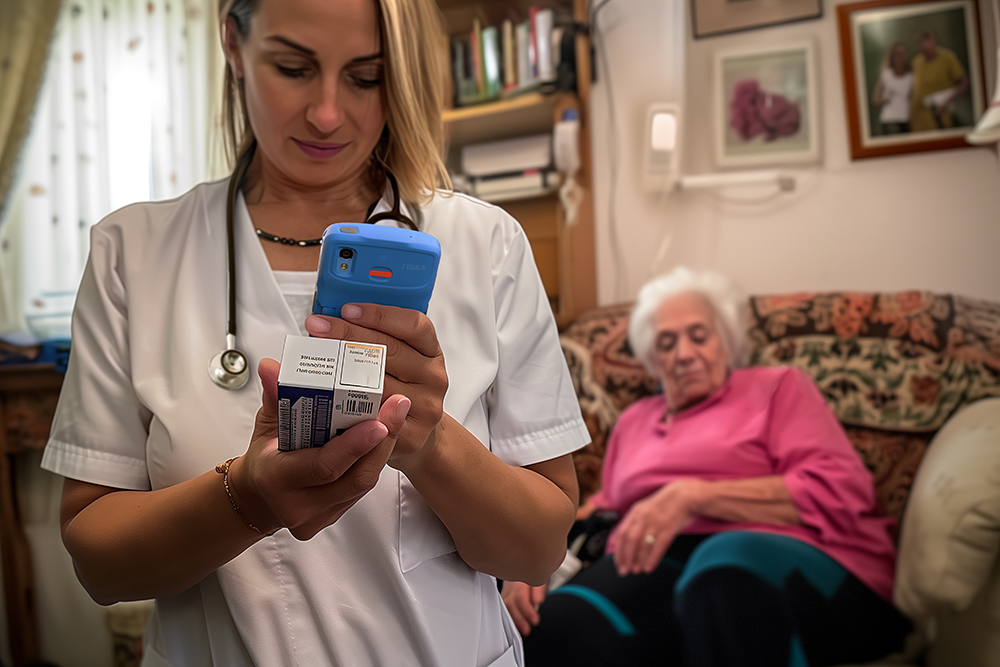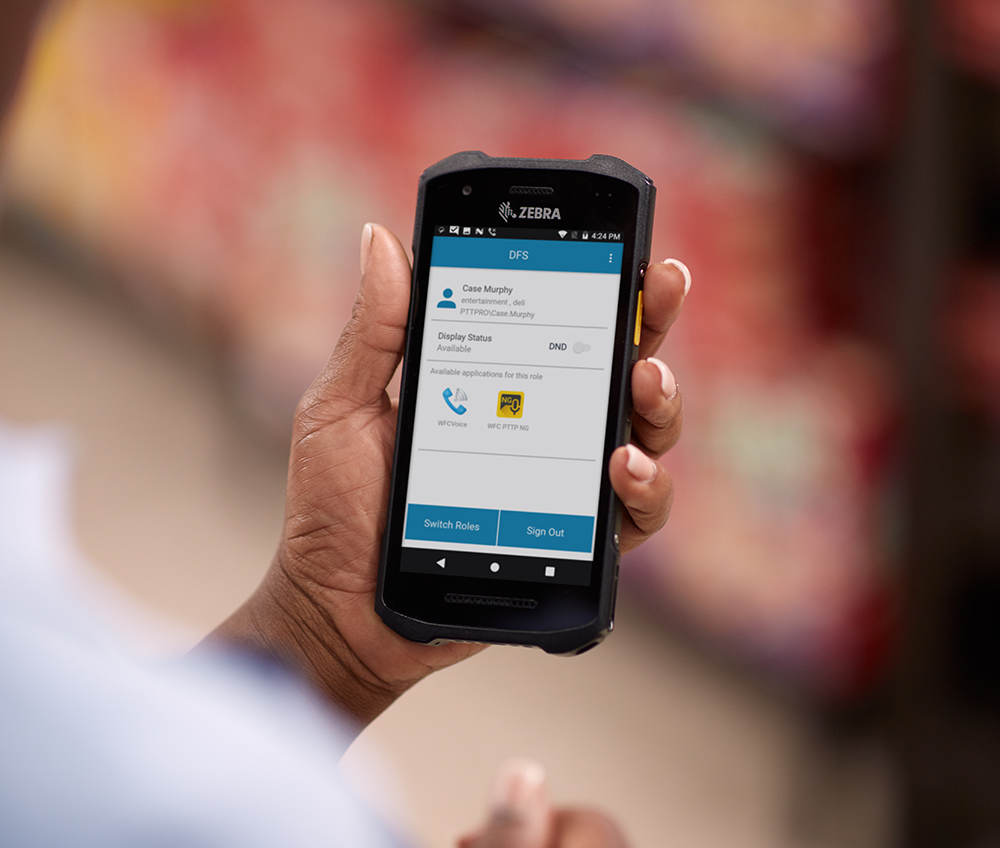Mobile Computers - The Top 18 Most Frequently Asked Questions
Originally published 5/18/2021; Updated 3/11/2025
Mobile Computers are not new devices, but they can be intimidating for businesses to purchase because of the cost, number of options, and ambiguity surrounding features and capabilities. Below are 10 out of 18 of the most frequently asked questions surrounding Mobile Computers, answered by Zebra Technologies, one of the top manufacturers. For more information on Mobile Computers - don’t hesitate to contact us!
Special thanks to Zebra Technologies for answering these 18 common questions about Mobile Computers. Click here to see Zebra’s top Mobile Computers.
#1 What is a Mobile Computer?
A Mobile Computer is a portable, handheld device used in enterprise environments to run mobile apps, capture barcodes, take photos and videos, and provide voice and data communications for workers and managers.
Mobile Computers are available in different form factors ranging from smartphone-style and tablet devices to rugged industrial-grade handheld computers.
#2 What types of functions are generally available on Mobile Computers?
Most Mobile Computers will allow users to:
- Run software applications
- Connect to Wi-Fi and/or cellular networks
- Connect to peripheral devices via Bluetooth
- Scan barcodes
- Take photos or videos
- Transmit voice and data
Other features and capabilities will vary depending on the specific device.
#3 What is the top functionality of Mobile Computers?
The “top” functionality of a Mobile Computer will vary depending on the user and the application.
But the core functionality of a Mobile Computer is in its name: A mobile device that allows you to access computing capabilities from virtually anywhere.
Mobile Computers are similar to a mini desktop or laptop computer - in your hands, wherever you need it. Mobile Computers can do virtually anything laptop and desktop computers do, and sometimes more.
For example, a Mobile Computer can scan barcodes, whereas a desktop or laptop usually requires a separate peripheral device to be connected to it for that purpose.
#4 Which industry do you see Mobile Computers being the most popular?
Warehousing, transportation and logistics, and retail are three industries where Mobile Computers have played a crucial role in workflows and processes for the longest time. But Mobile Computers are widely used in virtually every industry, from manufacturing and healthcare to the energy sector, they are even used in education and government work.
#5 Why would I choose a Mobile Computer versus a barcode scanner or RFID reader?
Mobile Computers are often the best choice for many enterprise applications because they are multi-purpose devices that can provide mobile computing as well as barcode scanning and RFID reading and writing, (device dependent).
Barcode scanners/imagers and RFID Readers generally have two main functions – to capture data and then to transmit that data back to a host device. Mobile computers can easily outperform both, by functioning as a computer, barcode scanner, RFID reader, camera, and GPS device all from one convenient handheld – which saves time and money.
#6 How would I know I need a Mobile Computer? What functions would my application require?
If your business has workflows that would benefit from having mobile access to software and business data, a Mobile Computer is often a great choice. For example, you may have workers who need access to data such as:
- Customer Orders
- Inventory Numbers
- Shipping Addresses
- Order Fulfillment Capabilities
- Mobile ERP Systems
- Proof of Delivery Signatures
- Field Inspection information
- Business Records
- Business Pictures and/or Videos
- Repair Data
The potential use cases are endless, but if you have questions about whether a Mobile Computer is the right fit for your business needs, contact us directly. We can help you evaluate your options and decide if it makes sense to use Mobile Computers or possibly a different solution.
#7 Can a Mobile Computer provide GPS locations?
Yes. Virtually all Mobile Computers manufactured today are equipped with GPS locating capabilities. GPS capabilities are used with Mobile Computers every day to help track deliveries, routes, workflows, personnel in the field, and much more.
#8 How can data be imported/exported from Mobile Computers to PCs, networked, PCs or smartphones?
The easiest way to import or export data between Mobile Computers and other devices is to use Wi-Fi or cellular Internet connectivity or Bluetooth wireless (if available). Software applications are most often used to connect a Mobile Computer to another device, but additionally most models are also equipped with micro-USB, or communication ports for connecting.
#9 Is Wi-Fi availability necessary when using Mobile Computers?
No, Wi-Fi does not need to be available to use a Mobile Computer, as long as the device you’re using supports a cellular network. Some Mobile Computers are Wi-Fi only devices and others have both Wi-Fi and cellular capabilities. Determine the application’s specific connectivity needs in order to select the ideal Mobile Computer for your application.

#10 What is the average battery life for Mobile Computers?
Battery life in Mobile Computers is entirely dependent on the battery technology each device offers and how it’s being used.
Enterprise-grade Mobile Computers are designed with all-day business use in mind, so their batteries typically last much longer than consumer-grade devices using the same functionality. Mobile Computers can handle running multiple business apps, performing intensive scanning, as well as connected voice and data for hours at a time.
Many of Zebra’s enterprise-grade Android Mobile Computers can provide up to 14 hours of battery life and can regularly handle heavy usage for a full shift or more. Zebra also manufactures devices with hot-swappable batteries that can be replaced on the fly, simply swap in a fully charged battery while the original is being charged.
#11 What is the biggest factor that affects Mobile Computer battery life?
The biggest factor in battery life is how the device is being used. The size, specs, type of battery, and microchip set all have a major impact on battery life. Ultimately, however, battery life is dependent on how the device and its features are being used.
For example, the higher the display brightness and the more the device’s connectivity features are used—such as Wi-Fi, cellular, Bluetooth, and GPS—the faster you’ll drain the battery.
#12 Are there any certifications for Mobile Computer safety or specific industry applications?
Yes, there are a number of certifications that may apply to Mobile Computers. Manufacturers will typically earn and list these certifications in their device specifications. Examples of available Mobile Computer certifications include the following:
- IP Certifications – IP (Ingress Protection) certifications rate the degree of protection provided by mechanical casing and enclosures against intrusion, dust, and water.
- C1D1, C1D2, and ATEX/UECEx Certifications – C1D1, C1D2, and ATEX/UECEx certifications are for ensuring Mobile Computers are safe for use in potentially explosive environments. These certifications validate that devices will not spark and trigger a fire or explosion in environments where explosive fumes or gases are present.
- MIL-STD 810G Certification – The MIL-STD 810G certification is a military-grade certification for durability testing against concrete drops and tumbles.
Mobile Computers are often designed and manufactured for specific industry requirements, even when certifications don’t exist or aren’t applicable. For example, Zebra Technologies produces select mobile devices that are designed specifically for use in healthcare environments. These devices make cleaning and sanitizing easier and minimize areas where harmful bacteria can potentially hide and thrive, such as ingresses or screw holes.
#13 What is the typical lifespan of a Mobile Computer?
In terms of durability and operating life, Mobile Computers can last anywhere from a few years to 10 years or more if cared for. In addition, lifecycles are also determined by non-physical factors, such as a device’s operating system and its features and capabilities.
In many enterprise applications, Mobile Computers are expected to be in service for several years. Most Mobile Computers can meet that longevity requirement; however, businesses will often replace them in order to upgrade to next-generation devices that offer more computing speed, power, memory, and overall performance.
Even though all the above issues are possible, Mobile Computer operability problems and missing capabilities are not the most common reasons for replacing a device. Typically, a Mobile Computer replacement is due to reaching the limits of your operating system’s support terms and security updates. A Mobile Computer can potentially last a decade or more under the right circumstances, but if security patches or OS updates are no longer being released, an upgrade to a new device to avoid potential security vulnerabilities is vital.
#14 How many Mobile Computers does Zebra offer?
At any given time, Zebra offers a portfolio of 20+ core mobile computing devices. Zebra designs and builds Mobile Computers in a number of categories, including a variety of form factors to best suit your business needs, such as handhelds, wearable computers, vehicle-mounted computers, tablets, and personal shoppers.

#15 What are the main differences in your Mobile Computers?
Differences in Mobile Computers typically come down to form factor, purpose, specifications and capabilities
- Form Factor – A variety of form factor options are available to fit your application that differ in size, weight, or grip preference.
- Purpose – Purposes range depending on the application, such as inventory management, asset tracking/management, retail, or warehouse use cases.
- Specifications – Specification differences include processor speed, memory size, connectivity options, data capture options, and battery performance.
- Capabilities/Features – Some Mobile Computers are designed with unique features such as healthcare-grade plastic exteriors to prevent the spread of germs or an ultra-rugged exterior meant to survive multiple drops to concrete.
#16 Which Mobile Computer form factor should I pick for my application?
The ideal Mobile Computer form factor for your business application will depend on a few different factors. Here are a few questions to start with when deciding on the ideal form factor:
- Who will be using this device?
- Will the device user need hands-free operation?
- Which of these is more important for your application: larger screen size or lighter weight?
- In what type of environment will this device be used?
- Will peripheral devices be needed to enable additional features such as hands-free barcode scanning?
For help determining the perfect Mobile Computer for your business, feel free to contact us.
#17 What platform do most Mobile Computers run on?
Globally, most Mobile Computers (similar to smartphones and tablets) run on the Android platform.
Up until recently, enterprise-grade Mobile Computers typically ran on Windows Mobile operating systems. However, with the explosive growth of Android in popularity and improved Android security thanks to Zebra’s Mobility Extensions (Mx), Android is now the operating system of choice for all major enterprise-grade Mobile Computers.
Devices are still available today with Windows 10 IoT, but the industry is quickly moving away from Windows and toward an Android-dominant future.
#18 Can iOS be used on any Mobile Computer?
Apple’s iOS is generally unavailable on enterprise-grade Mobile Computers. Most often, if a device that runs iOS is needed, the best option is a consumer-grade smartphone or tablet. But the downside to using these devices instead of an enterprise-grade Mobile Computer is that consumer-grade devices are not as scalable and cost-effective as Mobile Computers.
Additionally, iOS devices are extremely fragile and are not built with all-day enterprise business use in mind. Because they are consumer-grade, they break, shatter, and get damaged easily. They’re also not engineered for high-volume barcode scanning or other forms of data capture.In addition, battery life is a major issue when using iOS devices for long shifts, especially when barcode scanning is used frequently.
For example, a consumer-grade Apple iOS smartphone can be used to scan barcodes using its built-in camera. However, iOS device batteries are not built for intensive, regular use of the camera for scanning. As a result, iOS devices suffer from battery life issues, and enterprise users scanning barcodes will often get only a few hours of battery life before needing to recharge.
To avoid costly replacements, data capture lag time, and frequent battery charging, the best option is to choose enterprise-grade Mobile Computers that are built for all day data capture and computing.
Conclusion
For more information about Mobile Computers, comment below or contact us!

